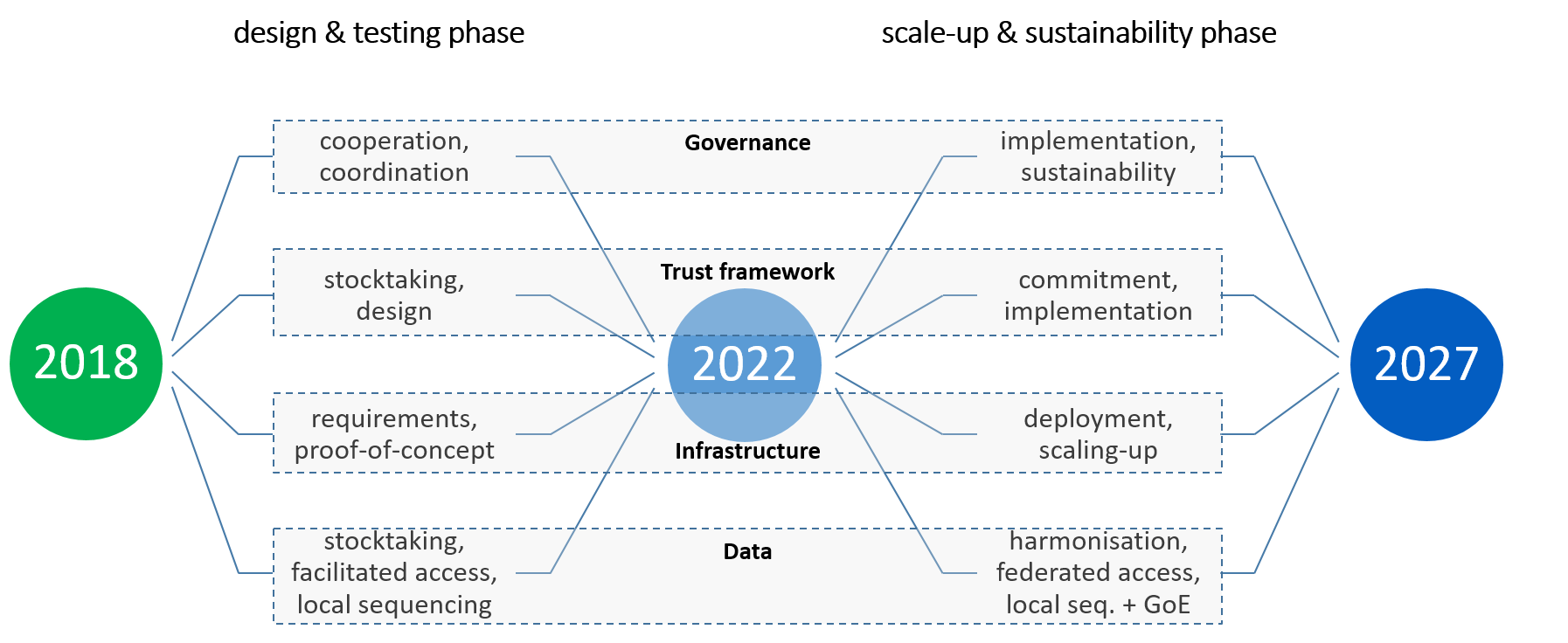The process of applying for official licenses and certifications is often a tedious and time-consuming task. People have to frequently carry out excessive paperwork from one government office to another. As part of its digital transformation efforts, China began harnessing blockchain to streamline this process and make it simpler and faster.
The activity of blockchain, which is known as a digital transaction in China, has witnessed a significant change after Chinese President Xi Jinping approved the use of these technologies. Many local governments have launched initiatives aimed at harnessing blockchain to achieve a set of objectives, including streamlining governance procedures. Simply put, blockchain is a type of distributed database with trustworthy record-keeping that makes possible cryptocurrencies like bitcoin as well as new types of products like digital identification. This technology is capable of developing decentralized, more transparent digital networks.
Shenzhen, a coastal city in China's Guangdong Province, has launched a blockchain-based platform to issue electronic certificates. This platform is based on the "i Shenzhen" app and is available through an application for government services previously developed by the municipality. This platform provides a digital format for a total of 24 types of commonly used government certificates and identification documents, including IDs. The platform will also support online and offline licensing, permit procedures, no-criminal record certificates, birth registration, and other services. On another note, the application enables immediate online access to documents, which relieves community members from the trouble of carrying paper documents when visiting local government offices, especially in cases in which an ID or a no-criminal record is required. Electronic copies may also be obtained and used by a third party with the permission of their owner. This authorization can be obtained by scanning a Quick Response (QR) code by both parties.
When a company sends one of its employees to obtain a permit or perform some other task, it is often necessary to prove that the employee has the right and is authorized to act on behalf of the company. Accordingly, the permit can be issued through the use of blockchain by companies and individuals to allow others to obtain licenses on their behalf at specific times and occasions, and for particular cases. The system can automatically pull up and verify the credentials of both parties, as to validate the request of the authorizing entity. For electronic certificates, blockchain ensures their reliability and traceability, in addition to strengthening the security and credibility of the system.
This is not the first time that blockchain was applied to government services in China. In June, China's Zhejiang Province launched a blockchain-based platform to streamline the country's healthcare system. Thanks to this platform, people can view their bills online after paying for medicines or other healthcare services, which can be used for refunds. The blockchain e-bill platform was launched to promote e-business with support from Alipay and Ant for financial blockchain solutions. People can use the platform to make doctor’s appointments, pay the bills, get prescriptions, take medicines, and pick up tickets without queuing up at every step.
Similarly, Shenzhen's metro, taxis, and airport trains have been integrated with the electronic invoicing blockchain built by Tencent and available within WeChat (a social media app similar to WhatsApp). Passengers who use WeChat to pay for tickets and file invoices can view their reimbursement claims which are processed through blockchain. Customers can also check the progress of their reimbursements and receive money online through WeChat.
The city is currently working on developing a national blockchain framework, called Blockchain-based Service Network (BSN). This network is expected to provide a platform for the development of blockchain applications for small companies and individuals. With the support of the Government of China, BSN has succeeded in becoming the largest blockchain system in the world. This network already covers over 100 cities or physical devices stationed on six continents. BSN aspires to attract 200 additional entities by the end of this year.
China currently has over 700 blockchain projects registered since last year with the country’s Cyberspace Administration. According to a 2020 report on China’s blockchain patent application, the country holds more blockchain patents than any other in the world. Users of blockchain services are uploading 100 million digital assets per day, mostly records for transactions.
China is the most active major government in the world in the development of blockchain technologies. It is one of the few countries that perceive blockchain as an emerging strategic technology along with other fields, such as artificial intelligence and the Fifth Generation of Wireless Communications.
Resources:
https://www.ledgerinsights.com/blockchain-china-shenzen-government-certificates/






